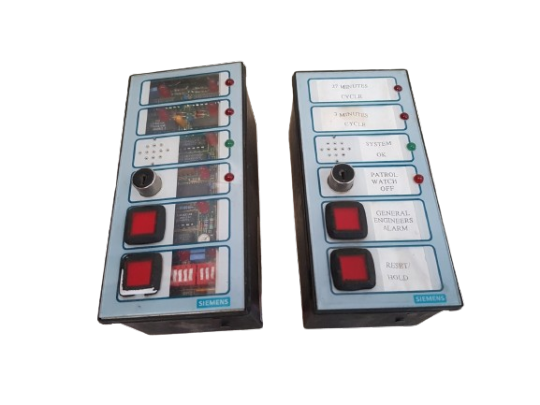#FUSES
Explore tagged Tumblr posts
Text










Fuses (1967) by Carolee Schneemann
85 notes
·
View notes
Text

Blue Sea 5180 75A Fuse Terminal http://dlvr.it/THbbDy
0 notes
Photo

PRIMA PAGINA Equipe di Oggi domenica, 12 gennaio 2025
#PrimaPagina#equipe quotidiano#giornale#primepagine#frontpage#nazionali#internazionali#news#inedicola#oggi comme#fuses#dimanche#portes#paris#rugby#bonus#gagnant#tenais#eternel#force#ligue#grace#victoire#marseillais#creusent#leurs#poursuivants#consolident#leur#place
1 note
·
View note
Text
☆ONCCY Electrical's EAS80 Series AC Isolators play a crucial role in photovoltaic power systems.☆ Their primary function is to ensure the safe operation of electrical equipment, significantly enhancing the stability and reliability of the system. ▶Key Features of the EAS80 Series: ○Current Range: 16 to 125 Amperes ○AC Voltge: Up to 800VAC ○Optionall auxiliary contacts and additional stages ○Standards Compliance: Strictly complies with IEC/EN60947-3 standards For more product information, please visit our official : www.onccy.com. You can also contact us via✉at [email protected]. Additionally, feel free to reach out to us through WhatsApp at +8617301617015.

#ONCCY#EAS80#ACIsolator#Photovoltaic#SolarEnergy#ElectricalSafety#IEC60947#PowerSystems#RenewableEnergy#ElectricalEquipment#Stability#Reliability#Fuses#CurrentRange#ACVoltage
0 notes
Text
Fuses in Industrial Automation: Essential Protection for Reliable Systems
In industrial automation, equipment and systems need protection against electric faults. Possibly one of the most important yet underrated items in this protection process is the fuse. Fuses protect electrical circuits from overloads and short circuits at a very low cost without allowing costly machinery damages and minimization of downtime. In this blog, we’ll see the importance of the fuse in an industrial automation, types, and applications, in which fuses play an important role in reliable and safe operations.

What is a Fuse?
A fuse is essentially a protective device which cuts the circuit upon an excess current level. This is done to prevent damage to the equipment. A fuse comprises of a metal wire or a filament, which melts when the excess current flowing through it exceeds its rated capacity. The action of melting breaks the circuit, stopping the flow of current and protecting the rest of the system from further possibilities such as overheating, fire, or component failure.
Industrial Automation Protects motors, sensors, control panels, and other vital system components from electrical faults by using fuses. The most common application of fuses is in series with electrical circuits so that when a surge or fault occurs, the fuse will blow and open the affected circuit.
In high-quality fuses in industrial automation, it means that they protect, extend, and make electrical systems reliable. A high-quality fuse helps protect sensitive equipment from overloads, short circuits, and surges. These eventualities can be very costly in repairing or even a system failure. Choosing the ideal fuses, especially the accurate rating on current and voltage, will put industries safely on guard against unpredictable electrical faults in their machinery, control panels, and electronic components. Good-quality fuses provide quick response times, which means minimizing possible damage from electrical hazards. They are engineered to provide consistent performance over time. They are also designed with advanced materials that enhance durability and reliability, making them suitable for severe industrial environments involving power surges and fluctuations. Whatever the motor, PLC, or transformer, high-quality fuses play a significant role in protecting the safety and efficiency of automated systems.
Why are Fuses Important in Industrial Automation?
Overload Protection: Overloads are those conditions where a circuit carries too much current, leading to overheating, thus potentially causing damage to electrical components, as well as a fire hazard. Fuses provide the necessary limitation on the current to a safe level so that the circuit does not carry more current than it is rated for.
Short Circuit Protection: Faults causing low resistance between two points can cause short circuits. The output current will surge drastically, damaging equipment and a safety hazard may be created. Fuses detect this type of short circuit. They then blow, disconnecting the power so no more damage will be done. Preventing Equipment Damage
Preventing Equipment Damage: Critical industrial equipment such as motors, PLC systems, and control panels are costly to replace or repair. Fuses provide a cheap means to guard these critical systems, avoiding pricey repairs and associated lost time.
Reducing Downtime: Blown fuses indicate that something has gone wrong, and it is at such an early stage. Maintenance teams can now easily identify what has gone amiss and correct the problem before it gets too out of hand. This minimizes downtime in automated systems.
Safety: Fuses add to the overall safety of a workplace by avoiding electrical fires, equipment damage, and electrical shock resulting from poor wiring or faulty components.
Types of Fuses Used in Industrial Automation:
1. Cartridge Fuses: Cartridge fuses provide high current-limiting protection for larger equipment and high-power circuits.
2. Blade Fuses: Flat, rectangular fuses with metal blades, used in low-voltage, low-power applications.
3. Thermal Fuses: Thermal fuses melt when a particular temperature is achieved, thereby protecting against overheating.
4. Resettable Fuses (Polyfuses): Those polyfuses that automatically reset when the overload or a short circuit condition is cleared. Being resettable, they can be used multiple times
5. High-Speed Fuses: Those fuses that blow immediately to safeguard sensitive electronic parts from overcurrents
6. Time-Delay Fuses (Slow-Blow Fuses): Fuses that allow temporary overcurrents without blowing immediately, providing protection against inrush currents.
7. Glass Tube Fuses: Small cylindrical fuses with a transparent glass body for easy visual inspection, used in low-power circuits.
Benefits of Using Fuses in Industrial Automation:
Cost-Effective Protection: Fuses are reasonably priced in comparison to the cost of repair or replacement of costly equipment. By guarding critical components, fuses are a cost-effective means toward ensuring long life and safety.
Rapid Response Time: Fuses respond almost immediately to an overload and short circuit, preventing prolonged harm to machinery and reducing the chances of fire or electrical hazards.
Ease of Maintenance: It is simple and inexpensive to replace a blown fuse. Thus, maintenance is straightforward and less costly. This makes quick troubleshooting with minimum downtime.
0 notes
Text
Commercial Fuses And Fuse Holders - Parts Fe

Fuses play a crucial role in various restaurant kitchen appliances, including ovens, fryers, grills, refrigerators, and dishwashers. Given the substantial power requirements and exposure to electrical surges in these devices.
0 notes
Text
Commercial Fuses & Fuse Holders - PartsFe

Fuses are used in a wide range of restaurant kitchen equipment, including ovens, fryers, grills, refrigerators, and dishwashers. These appliances typically require a significant amount of power to operate, and they are often subjected to electrical surges or spikes. Fuse replacement is a common occurrence in commercial kitchens.
Shop PartsFe's wide selection of commercial fuses and fuse holders for restaurant kitchen appliances. We carry high-quality, reliable products from the top manufacturers with same day shipping.
#Fuses#CommercialFuses#FuseHolders#partsfe#partsfebuzz#restaurantowner#restaurantequipmentparts#kitchenequipmentparts#foodserviceparts#ovenparts#icemachineparts#dishwasherparts#griddleparts
0 notes
Text
Buy Commercial Fuse Holders at CateringSparesOnline

We stock a massive inventory of commercial catering equipment parts,from industry-leading manufacturers Whether your ice machine needs Find high-quality commercial fuse holders for your catering equipment at CateringSparesOnline. Reliable, durable, and competitively priced. Order now!
#cateringequipmentparts#cateringparts#restaurantequipmentparts#cateringpartsuk#cateringsparesonline#ElectricalAndHardwareParts#fuses
0 notes
Text
//NAME MC SPOILERS!!

I can’t believe Ren used the last of his power to fuse them together like you could’ve just said you miss him like a normal person
#would rather decapitate and permanently fuse with each others DNA then have a normal ceremony#treebark wedding real#renwood#treebark#life series#trafficblr#wild life smp#wild life#wild life spoilers#name mc spoilers#mcyt#renchanting#inthelittlewood#martyn inthelittlewood#Martyn#renthedog#ren#ren dog
6K notes
·
View notes
Text
Fuse Essentials: Powering Up Your Industrial Automation System
In the realm of industrial automation, every component plays a crucial role in ensuring smooth operations. Among these components, fuses stand out as essential guardians of electrical systems. Fuses serve as the first line of defense against electrical faults, protecting equipment, personnel, and the overall integrity of the automation system. In this blog, we'll look into the fundamentals of fuses in industrial automation, exploring their importance, types, selection criteria, installation best practices, and maintenance tips. By understanding fuse essentials, you'll be empowered to optimize your industrial automation system for enhanced performance, safety, and reliability.
Understanding Fuses

Fuses are simple yet crucial components in electrical circuits. At their core, fuses are safety devices designed to interrupt the flow of current when it exceeds a specified threshold, thereby protecting the circuit and the connected equipment from damage. They consist of a metal wire or strip that melts when exposed to excessive current, breaking the circuit. In industrial automation, where machinery and processes rely heavily on electrical power, fuses play a critical role in safeguarding assets and preventing catastrophic failures.
Importance in Industrial Automation
In industrial automation, where machinery and equipment operate continuously, fuses act as the first line of defense against electrical faults. They safeguard expensive machinery, control systems, and sensitive electronics from damage caused by over currents, short circuits, and other electrical faults. Without proper fuse protection, industrial automation systems are vulnerable to downtime, costly repairs, and even catastrophic failures. The importance of fuses in industrial automation cannot be showy. These small yet mighty devices act as guardians, preventing electrical overloads, short circuits, and other faults from causing damage to expensive equipment and disrupting production processes. By interrupting the flow of excessive current, fuses mitigate the risk of fires, equipment damage, and costly downtime.
Types of Fuses for Industrial Automation
Several types of fuses are used in industrial automation systems, each customized to specific applications and operating conditions. These include cartridge fuses, blade fuses, resettable fuses (PTCs), and semiconductor fuses. Understanding the characteristics and limitations of each type is essential for selecting the right fuse for your automation system.
Selecting the Right Fuse for Your Automation System

Selecting the right fuse involves considering multiple factors, including circuit voltage, voltage rating, current rating, interrupting rating, operating environment, and system requirements. It's crucial to choose a fuse with the appropriate current rating and time-delay characteristics to ensure reliable protection without unnecessary nuisance trips. Additionally, proper fuse sizing helps optimize system performance and minimize downtime. By conducting a thorough assessment of your automation system's electrical needs and potential risks, you can choose fuses that provide optimal protection without compromising performance or safety. Consulting with electrical engineers or experienced professionals can help ensure proper fuse selection.
Best Practices for Fuse Installation and Maintenance
Proper installation and maintenance are essential for ensuring the effectiveness of fuses in industrial automation systems. This includes following manufacturer guidelines for installation, using quality fuse holders, regularly inspecting fuses for signs of wear or damage, and replacing them as needed. Fuses should be installed according to manufacturer specifications and industry standards, with attention to factors such as mounting orientation, enclosure type, and wire size. Additionally, regular inspections and maintenance checks can help identify issues such as loose connections or corrosion, ensuring continued reliability and safety. Implementing proactive maintenance practices can help prevent unexpected failures and prolong the lifespan of your equipment.
Maintaining and Troubleshooting Fuses
Regular maintenance is key to ensuring the reliability and effectiveness of fuses in industrial automation. Periodic inspections should be conducted to check for signs of wear, damage, or overheating. Additionally, troubleshooting techniques such as continuity testing can help identify faulty fuses and prevent potential failures before they occur. Prompt replacement of damaged or expired fuses is essential to maintain the integrity of the automation system.
Conclusion
In conclusion, fuse essentials are critical for powering up industrial automation systems, providing essential protection against electrical faults and ensuring the reliability and safety of your operations. By understanding the fundamentals of fuses, selecting the right type and size, and following best practices for installation and maintenance, you can optimize the performance of your automation systems and minimize downtime. Invest in quality fuses and prioritize safety to keep your operations running smoothly.
#industrial automation#industrial equipment#industrial spare parts#auto2mation#industrial and marine automation#industrial and marine automation equipment#industrial automation equipment#automation#industrial#fuses
0 notes
Text


Fuses (1967) by Carolee Schneemann
#Fuses#Carolee Schneemann#film#cinema#movie#movie stills#film frames#cinematography#movies#films#experimental film
57 notes
·
View notes
Text

Victron Mega-Fuse 125A/32V *5-Pack http://dlvr.it/THGVSw
0 notes
Text

Part Number – 1024279-00-A Brand – Bussmann Condition – New Description – 1024279-00-A Bussmann Typower Zilox Fuse, 450a 690v 1bn/50 ar uc.
Contact us: +91-96115-17500 / +91-99022-80773 Email us: [email protected] Visit our website:- https://adatronix.com/.../electronics.../fuses/1024279-00-a/
0 notes